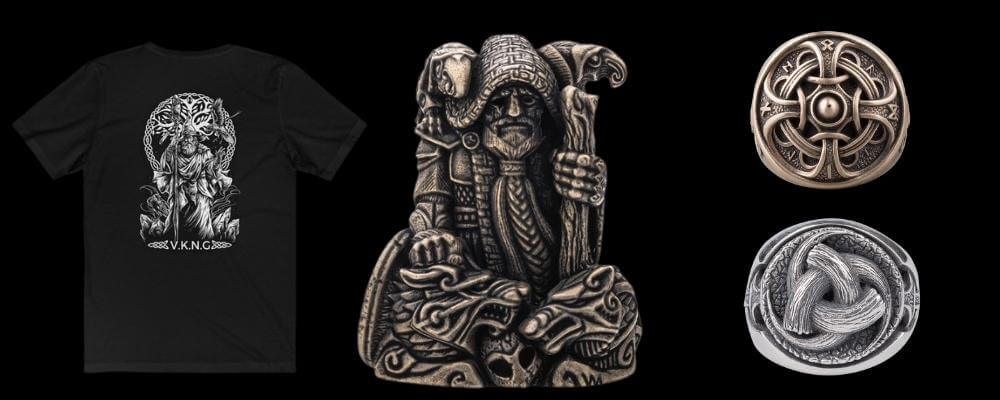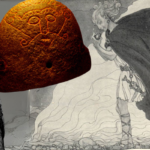In season three of the History Channel’s series Vikings, we are introduced to a character called Harbard. A man with some kind of mysticism about him, he turns up in Kattegat and causes quite a lot of trouble before he disappears again.As most of the characters in Vikings are based on historic individuals or figures from Norse mythology, this raises the question. Who exactly is Harbard in Vikings supposed to be?

Harbard in Vikings
Spoiler alert warning!
We are introduced to Harbard in season three of Vikings. He appears in Kattegat when most of the Viking men, and Lagertha, are off raiding. But he doesn’t just appear, his arrival is foretold with Aslaug, Helga, and Siggy all having dreams about his arrival.
When he does turn up, he appears to be a wanderer in need of help with a minor wound. He is invited to dine with the women and repays them with storytelling.
He tells part of the story of Thor’s confrontation with Utgard-Loki in the land of the giants, pretending that he is Thor himself. But Helga recognizes the story and points this out to him. Harbard admits that it was indeed Thor, but that he was there, and he witnessed it.
Soon after this, he hears the baby Ivar crying in pain. He goes to comfort the baby and is miraculously able to take away his pain.
He then starts an affair with Aslaug, who is both intrigued by Harbard and grateful to him. But he upsets her when she discovers that he is also enchanting and sleeping with many of the women in Kattegat.
There is also a suggestion that he is luring Aslaug away from her children, who wander out onto a frozen lake. The ice breaks beneath them and they fall in. Siggy dives in to save them, losing her own life in the process. There is a strong suggestion that Harbard somehow put these events in motion.
When he leaves Kattegat, he seems to magically disappear into the fog.

Harbard as Odin
There is a very strong implication that the Harbard that we meet in Vikings is meant to be the god Odin in the guise of a wanderer. Odin, the principal Viking deity and the god of war, wisdom, writing, and witchcraft, often abandoned his seat in Asgard and disguised himself as wander the world.Odin says in the Grimnismal that one of the names he uses when in disguise is Odin. Floki seems to recognize this, as when Helga tells him about the mysterious visitor, he tells her that he is not just any man, but the god Odin.

Harbard the Gate Keeper
But this is not entirely consistent with what we know about Habarf from the Hardardslijod, which appears in the 11th century Poetic Edda, but may be based on earlier oral traditions.
In this story, Harbard is a ferryman that Thor encounters when he is returning to Asgard from Jotunheim. Harbard blocks his path across a river.

This Harbard boasts about his sexual prowess and his tactical abilities and asks Thor if he can match him. Thor responds by telling stories about his battles against the giants. But Harbard is unimpressed and calls Thor scruffy, says that his wife is unfaithful, and tells him that his mother is dead. In the end, Harbard curses Thor, turning him away to wander the earth.
Many scholars assume that the Harbard in this story is Loki in disguise. The actions of the character seem consistent with Loki, and Loki also accuses Thor’s wife of being unfaithful in another story.If the Harbard in Vikings is based on this character, he could be Loki. Or he could be Thor, who assumes the mantle of Harbard when he is forced away to wander. This would be consistent with the Harbard character in Vikings telling stories from the perspective of Thor.

What Do You Think?
It is clear that the Harbard character in Vikings is based on the idea of Odin wandering in the realm of men. The writers make this explicit when Floki informs us that Harbard is another name for Odin.
But the story of Harbard in Norse mythology seems to be a bit more complex. It is possible that the name is associated with more than one figure in Viking mythology, or that the name, which means Greybeard was used generically for the gods when they assumed the form of a wanderer.
If this is the case, at different times Harbard could be Odin, Loki, or Thor.
What do you think is most likely?








